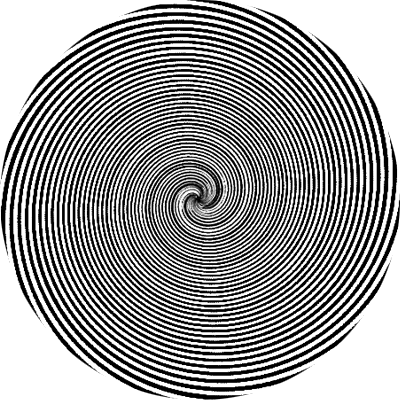Automatic writing in "Martian" produced by Smith at a séance
 Théodore Flournoy (1854 –1920) was a professor of psychology at the University of Geneva and author of books on spiritism and psychic phenomena.
Théodore Flournoy (1854 –1920) was a professor of psychology at the University of Geneva and author of books on spiritism and psychic phenomena.
 In 1894 he met the medium Catherine Elise Muller , which he renamed " Helen Smith " in his important book “From India to the planet Mars” . The medium said writing under the dictation of a certain Leopold, which is another name for Joseph Balsamo. Impressed by the extent of her talent, Flournoy decided to study the case. To do this, he attended many sessions and subjects it to some experiences that change her trances and plunge into sleepwalking .
In 1894 he met the medium Catherine Elise Muller , which he renamed " Helen Smith " in his important book “From India to the planet Mars” . The medium said writing under the dictation of a certain Leopold, which is another name for Joseph Balsamo. Impressed by the extent of her talent, Flournoy decided to study the case. To do this, he attended many sessions and subjects it to some experiences that change her trances and plunge into sleepwalking .
1. Helen Smith wrote novels in a somnambulistic state, divided into three cycles. In the Martian cycle, she communicates with people in the world in Mars and written in another alphabet.
2. Hindu Cycle, she is the reincarnation of a princess Indian , daughter of a Sheikh Arab , and speaks Sanskrit by glossolalia .
3. And finally, the Royal cycle she takes the personality of the Queen of France Marie-Antoinette of Austria .
Professor Théodore Flournoy’s studies of the medium Hélène Smith were turned into a book, Des Indesà la planète Mars, which caused a considerable sensation in psychological and parapsychological circles in Europe and the United States. In it he described the phenomenon of "cryptamnesia," forgotten memories that reappear without being recognized by the subject, who believes they are new. These memories disappear because of their association with childhood sexual emotions. These involve a "subliminal process capable of achieving a degree of complexity and extent comparable to the work of composition and reflection in the thinker or novelist." They are "reminiscences or momentary returns to earlier phases, which have long since been forgotten and which, normally, should have been absorbed during the individual's development instead of recurring in strange forms."
Flournoy asserted that imagination and cryptomnesia were the sole sources of a large number of mediumistic communications. With regard to the remaining part, he referred to the supernormal powers of man as a fact which seemed to make superfluous the assumption of the participation of the dead.
He called on Ferdinand de Saussure[1] to examine the language she wrote spontaneously. It shows that it uses alphabets which are fanciful and mimic French, and resumed the dreams of knowledge which she had access. Smith, who composed in trance romances about the conditions on the planet Mars, and for one thing invented for the use of the inhabitants a language that in the most naive manner imitated her own mother-tongue.
The following, quoted from Esprits et mediums, by Professor Flournoy, is another typical example:
Madame Dupond, a well-bred and cultured lady from Geneva, of literary taste and philosophical and religious leanings, took up the study of spiritism at the age of forty-five. She tried automatic writing, and, at the end of eight days, was able to get the names of dead relatives and friends, who gave her messages of a philosophico-religious nature. About three days later, after having received various communications, her pencil wrote suddenly, and quite unexpectedly, the name of a young Frenchman she knew Rodolphe X., who had recently entered a religious order in Italy. As she did not know that he was dead, she was surprised and shocked; but her hand continued to write, confirming the sad news in the following circumstantial details :
" I am Rodolphe. I died last night at eleven o'clock, the 23rd. I had been ill for several days, and I was not able to write. I had an inflammation of the lungs, caused by a sudden change in the weather. I died without pain, and I have been thinking of you. ... I am in space. ... I see your parents, and I like them also. Good-by. ... I am going to pray for you. ... I am no longer a Catholic, I am a Christian."
After her first astonishment, Madame Dupont believed more and more in the authenticity of this message, because for almost a week she continued to receive communications from Rodolphe, making numerous allusions to their past relations. She had met Rodolphe, who was then a priest, during a stay in the South the preceding spring. He had returned from Italy, where he had spent the winter on account of his poor health, and had stopped a few days at the same hotel. Between this Genevese, a confirmed Protestant and republican, and this man from the north of France, an ardent legitimist and Catholic, in spite of the difference in their ages (he was scarcely twenty), a real moral and intellectual intimacy was formed, as a natural con- sequence of the analogy of their temperaments and the unity of their idealistic aspirations. Each of them had tried, without success, to convert the other to his own ideas; and when they were separated, they had continued this discourse by correpondence, even after Rodolphe had entered the religious order, pouring out their souls to each other in full confidence. At the moment of Madame Dupond's automatic writing, it was Rodolphe who owed a letter to his friend.
Do we not see there an excellent case of the apparent intervention of a " discarnated spirit " to use the expression familiar to the partizans of the spiritistic doctrine in the affairs of this world?
Unfortunately, six days after the first communication from the supposed dead man: . . . there reached her by post a letter from Rodolphe, who, far from being dead, was in perfect health. It shook Madame Dupond's recent spiritistic convictions so thoroughly that she was discouraged from pursuing further such disconcerting experiments.
It is necessary to read in Professor Flournoy's book (Esprits et mediums) he detailed a penetrating analysis to which he has submitted all the circumstances of this interesting case, and which fully justifies, we think [see THE PSYCHOLOGY OF THE FUTURE BY EMILE BOIRAC-1918], the conclusion he has reached: viz., that all the communications received by Madame Dupond reflected her own dispositions, conscious or not, and corresponded exactly to those which could not fail to be in her. " She alone, in other words, and not Rodolphe, was dead at that moment, and can be considered as the real source of the communications."
 [1] Ferdinand de Saussure (1857 –1913) was a Swiss linguist whose ideas laid a foundation for many significant developments in linguistics in the 20th century. He is widely considered one of the fathers of 20th-century linguistics and the founder of structuralism in linguistics.
[1] Ferdinand de Saussure (1857 –1913) was a Swiss linguist whose ideas laid a foundation for many significant developments in linguistics in the 20th century. He is widely considered one of the fathers of 20th-century linguistics and the founder of structuralism in linguistics.
Repression is one of the most haunting concepts in psychology. Something shocking happens, and the mind pushes it into some inaccessible corner of the unconscious. Later, the memory may emerge into consciousness.
I found this on a popular new age metaphysical website:
“One of the best-known automatic writers was Helene Smith, an early 20th century psychic who felt that her automatic writing was the attempt of Martians to communicate with Earth. She claimed she could translate their Martian language into French.”
But it fails to mention that Smith by and large made it all up by her own imagination.















